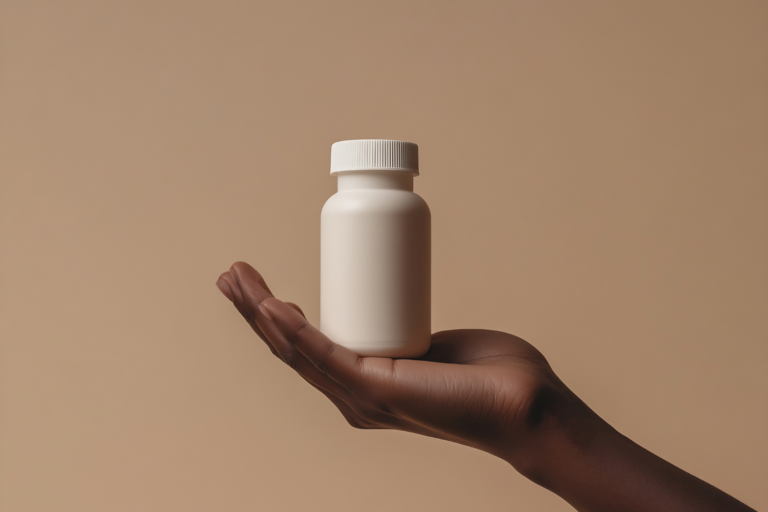Choosing the wrong supplement manufacturer can put your brand at risk. Poor product quality, mislabeled dietary supplement ingredients, or failure to meet federal food safety standards can all lead to serious adverse events, lost customer trust, and regulatory issues. In the crowded dietary supplement industry, manufacturers vary widely in transparency, compliance, and product testing practices. Making the right choice isn’t just important. It’s essential for protecting your brand and ensuring long-term success. A structured supplement manufacturer evaluation using a clear scoring system allows businesses to compare different manufacturers based on product quality, certifications like current good manufacturing practices, and other critical factors.
This article explains how to use that system to confidently select a partner who meets your standards and helps you select a partner that meets your quality and safety standards.
What Is a Supplement Manufacturer Evaluation Scoring System?
A supplement manufacturer evaluation scoring system is a structured method for comparing manufacturers across consistent benchmarks. It helps brands assess production quality, safety standards, and business transparency using measurable data.
In the dietary supplement industry, not all manufacturers follow the same rules or meet the same quality standards. Some follow current good manufacturing practices and FDA regulations closely, while others cut corners in ways that could affect product quality and safety, potentially leading to adverse events or product recalls. Using a scoring system removes guesswork and lets you compare different manufacturers side-by-side using clear criteria, instead of vague impressions or sales pitches.
When you’re dealing with dietary supplement products like capsules, tablets, herbal products, or amino acids, the risks of poor manufacturing aren’t small. Issues with dietary supplement ingredients or failure to comply with the Federal Food, Drug, and Cosmetic Act can lead to adverse events, product recalls, or even legal trouble. A strong scoring method helps you spot red flags early, like missing certifications, unclear labeling, or poor product testing practices, and prioritize manufacturers who follow proper safety, labeling, and testing processes.
A scoring system also gives your team a way to stay aligned. If you’re sourcing vitamins, minerals, or other botanicals across different manufacturers, this tool ensures every option is judged fairly based on the same regulatory requirements and food safety expectations.

Key Criteria in the Scoring System
A strong evaluation system focuses on three core areas: business profile, product-related factors, and credibility. These help determine whether a manufacturer can consistently meet your brand’s quality standards, fulfill orders on time, and stay compliant with food and labeling regulations.
Business Profile
Start with the basics. A reliable supplement manufacturer should have a strong business foundation. Look for how long the company has been operating in the dietary supplement market and check if it has a stable ownership structure with verified legal standing. Longevity in the industry often signals experience in navigating changing regulations, especially those tied to the Federal Food, Drug, and Cosmetic Act (FD&C Act) and the Cosmetic Act.
It also helps to look at feedback from current or past clients. Verified reviews, industry partnerships, or case studies involving specific brands can offer insight into how a manufacturer handles real-world production challenges. These give you a clearer view than a sales pitch ever could.
Product-Related Factors
When evaluating a supplement manufacturer, take a close look at how they manage production, testing, and pricing. These details can directly affect dietary supplement quality, food safety, and your brand’s ability to grow in the market.
- Production capabilities and capacity
Confirm that the manufacturer can handle your current volume and future growth. This includes facility size, trained staff, and the ability to manufacture a broad range of dietary supplement products such as capsules, tablets, or powders. - Handling of dietary supplement ingredients
Ask how they store, measure, and process dietary ingredients like amino acids, herbal extracts, vitamins, and other botanicals. Poor ingredient management can impact product safety and a brand’s ability to substantiate claims listed on the label. - Product testing and analytical methods
A qualified manufacturer should use proper analytical methods to test for heavy metals, contaminants, and ingredient accuracy. They should also be able to verify that dietary supplement ingredients match what’s listed on the label. - Transparency in pricing and minimum order quantities
Look for clear, upfront pricing and reasonable minimum order quantities that fit your business model. Unexpected costs or high MOQs can affect margins, especially for newer supplement brands.
Choosing a manufacturer with strong product-related practices helps ensure quality, safety, and consistency, which are key factors for any brand competing in the dietary supplement industry.
Business Credibility and Transparency
Certifications are non-negotiable in the supplement space. Any manufacturer you work with should follow current good manufacturing practices (cGMP), and ideally have third-party certifications from NSF (National Sanitation Foundation), UL (Underwriters Laboratories), or similar programs. These certifications signal that the manufacturer follows protocols that ensure quality, labeling accuracy, and food safety.
You should also be able to request and review core documentation. Ask for proof of FDA registration, internal audit summaries, or quality control logs. A good partner won’t hesitate to show you their process or give you a virtual or in-person tour. If they avoid questions or push back when you ask for more information, that’s a red flag, especially in an industry where safety and trust directly affect consumer health.

Non-Negotiable vs. Negotiable Criteria
When evaluating a supplement manufacturer, it’s important to separate what’s essential from what’s optional. The table below outlines the key differences between non-negotiable and negotiable criteria to guide your decision-making.
| Non-Negotiable Criteria | Negotiable Criteria |
|---|---|
| Compliance with current good manufacturing practices (cGMP) | Support for a broad range of supplement formats (e.g., tablets, powders, capsules) |
| FDA facility registration and adherence to federal food safety regulations | Flexible minimum order quantities |
| Adherence to current good manufacturing practices (cGMP) and third-party certifications like NSF or UL | Shorter lead times or faster production turnaround |
| Proven product testing protocols and traceable analytical methods | Private label support or access to unique formulations |
| Clear documentation on ingredient sourcing, safety standards, and testing methods | Advanced packaging options or custom labeling services |
| Accurate dietary supplement labeling and verification of listed dietary ingredients | Help with applied nutrition claims or brand education resources |
| Ability to detect and control contaminants like heavy metals | Specialized experience with specific herbs, botanicals, or other niche ingredients |
Choosing a manufacturer that meets all non-negotiable criteria helps protect your brand from safety issues, product recalls, or regulatory violations. Negotiable factors can enhance your partnership but should only be considered once all critical standards are met.
Assigning Scores to Manufacturers
Using a structured scoring system helps you compare supplement manufacturers based on real documentation, not assumptions. Each point awarded should reflect a measurable action that impacts product quality, regulatory compliance, and consumer safety.
- Full Points
Award full points when a manufacturer meets all non-negotiable criteria, such as providing proof of facility registration with the FDA, complying with current good manufacturing practices, and following documented product testing protocols that detect contaminants like heavy metals. - Partial Points
Assign partial points if a manufacturer meets a requirement only in part. For example, they may follow food safety protocols but lack third-party certifications or may provide dietary supplement label documentation without verified analysis. - Zero Points
Give zero points when a manufacturer fails to meet a requirement altogether. This includes missing FDA compliance, no testing data, or unverified handling of dietary ingredients such as amino acids, minerals, or herbal products. - Use of Supporting Data
Base scores on solid evidence, such as audit reports, certificates, and product testing results, that confirm how the manufacturer manages safety standards, quality control, and dietary supplement health claims. - Evaluate Across All Key Areas
Apply scoring consistently to every part of the supplement manufacturer evaluation, including production capacity, packaging capabilities, and labeling practices, to ensure a fair and complete comparison.
This method makes your evaluation process consistent, fact-driven, and aligned with industry regulations. It also helps you avoid costly mistakes by identifying manufacturers who can truly deliver on quality and safety expectations.

Interpreting the Total Score
Once you’ve scored each supplement manufacturer, the totals reveal how well they align with your brand’s safety, quality, and regulatory requirements. Use these score ranges to guide your next steps.
- High Score (Strong Fit)
Indicates the manufacturer meets both non-negotiable and product-related criteria, such as FDA compliance, current good manufacturing practices, and proven product testing methods. These manufacturers are well-equipped to handle dietary ingredients safely and consistently deliver high-quality dietary supplement products. - Mid-Range Score (Potential Fit with Caution)
Suggests the manufacturer meets most standards but has a few gaps. They may lack certain third-party certifications, have limited capacity, or show minor transparency issues. These shortcomings may not immediately affect product quality, but they can limit your brand’s growth or product consistency over time. - Low Score (High Risk)
Signals weak manufacturing practices, poor documentation, or missing safety protocols. These manufacturers often fail to meet critical requirements for food safety, labeling accuracy, or dietary supplement product testing. Choosing a low-scoring partner increases your risk of regulatory issues or product quality problems, which can lead to adverse events. - Shortlisting Based on Score
Use your scoring results to narrow down a list of qualified supplement manufacturers. Focus on those who meet or exceed expectations across product quality, labeling, ingredient handling, and compliance with the Federal Food, Drug, and Cosmetic Act.
Choosing a manufacturer based on a reliable score allows you to move forward with confidence, knowing your brand is backed by real data and consistent quality standards.

Creating a Comparative Analysis Table
Once you’ve completed the supplement manufacturer evaluation for each candidate, organizing the results in a comparison table helps you and your team make faster, fact-based decisions. It shows how manufacturers stack up across critical areas like product quality, safety standards, and production capabilities.
- List each manufacturer with total scores
Include each manufacturer’s final score along with relevant details like certifications, facility size, and experience handling dietary supplement products such as capsules, powders, or herbal products. - Highlight product testing and food safety practices
Note which manufacturers use analytical methods to test for contaminants like heavy metals and verify the accuracy of dietary ingredients listed on the supplement label. - Record documentation and transparency
Track how willing each manufacturer is to share FDA registration, product testing reports, or details on their current good manufacturing practices and quality control systems. - Compare production capacity and flexibility
Add information on each manufacturer’s ability to scale, meet order volumes, and offer different packaging options or support for private-label dietary supplement products. - Use clear, consistent criteria for every column
Build your table around the same set of evaluation points, such as labeling accuracy, safety standards, pricing transparency, and handling of dietary substances, so comparisons are fair and easy to read.
With everything laid out side by side, your team can quickly identify which manufacturers meet your quality and regulatory requirements, and which ones fall short.

Steps to Implement the Scoring System
To get the most value from your supplement manufacturer evaluation, follow a structured plan. Each step below helps ensure you’re selecting manufacturers who meet your standards for safety, product quality, and regulatory compliance.
- Research and pre-qualify potential manufacturers
Use B2B platforms, directories, or referrals to find manufacturers who specialize in dietary supplement products. Make sure they can produce the formats you need, such as tablets, capsules, powders, or herbal supplements, and that they’re open about their processes. - Evaluate non-negotiable criteria first
Confirm that each manufacturer follows current good manufacturing practices, complies with FDA regulations, and provides product testing documentation. Review how they manage food safety, dietary supplement labeling, and ingredient analysis. - Review negotiable features that support your goals
Once you’ve verified the essentials, look at other features like pricing structure, minimum order quantities, lead times, and custom packaging options. These factors help determine how well the manufacturer fits your growth plan. - Schedule a facility tour or virtual walkthrough
Observing the facility gives you a first-hand look at how the manufacturer handles dietary substances, enforces quality standards, and follows safety procedures. This step can reveal strengths or concerns that aren’t obvious on paper. - Contact references and ask targeted questions
Speak with current or past clients to learn how the manufacturer handles communication, delivery timelines, testing reliability, and problem-solving. This insight helps confirm that their practices match what they claim during the evaluation.
Taking time to complete these steps helps ensure you’re choosing a manufacturer that not only meets product quality standards but also supports your long-term success in the dietary supplement industry.

Common Mistakes to Avoid
Even with a scoring system in place, it’s easy to miss warning signs if you’re not paying close attention. These missteps can lead to choosing a supplement manufacturer that fails to meet safety or quality standards.
Ignoring non-negotiable red flags
If a manufacturer can’t prove they follow current good manufacturing practices or won’t show documentation tied to FDA compliance, that’s not a small issue. Overlooking it puts your brand at risk of regulatory problems or product quality issues that could lead to adverse events.
Believing claims without verifying documentation
A company might say they conduct product testing or meet federal food safety standards, but unless they provide real evidence, those are just words. Always ask for lab reports, certifications, and process documentation to verify claims tied to dietary supplement ingredients and labeling.
Skipping transparency checks or tours
When a manufacturer avoids facility tours or limits access to key documents, that’s a signal that something may be off. Touring the site or reviewing how they handle dietary ingredients, packaging, and product testing gives you a clearer picture than any brochure or website ever could.
Avoiding these common mistakes helps ensure your supplement manufacturer evaluation leads to a partner who supports product quality, regulatory compliance, and long-term success in the dietary supplement industry.
Choose a Supplement Manufacturer Backed by Data, Not Assumptions
Scoring systems help eliminate guesswork when selecting a supplement manufacturer. Instead of relying on surface-level impressions or vague promises, you’re evaluating real data such as FDA certifications, product testing records, and manufacturing practices that follow regulatory requirements.
This structured approach allows you to compare different manufacturers fairly and focus on those who meet your brand’s safety, quality, and production needs. A reliable partner should do more than produce dietary supplement products. They should protect your brand, support long-term growth, and help ensure your supplements meet industry standards and regulatory requirements.
Make your decision based on facts, not shortcuts.
Frequently Asked Questions
What certifications should I look for in a supplement manufacturer?
Look for FDA facility registration, cGMP compliance, and third-party certifications like NSF to confirm the manufacturer has implemented protocols to meet dietary supplement quality standards.
How do I verify a manufacturer’s compliance with industry standards?
Ask for documentation such as audit reports, test results, and proof of current good manufacturing practices that align with federal food safety regulations.
What are common red flags when evaluating a supplement manufacturer?
Missing certifications, lack of transparency, no product testing, and resistance to tours or document requests often signal deeper problems with product quality or compliance.
How important is a facility tour in the evaluation process?
A facility tour helps confirm how dietary ingredients are handled, how the manufacturing process works, and whether safety and quality protocols are followed consistently.
Can I negotiate terms with a manufacturer who doesn’t meet all criteria?
Yes, but only if they meet all non-negotiable standards. Never compromise on food safety, labeling accuracy, or core compliance requirements.
References
- About NSF. (n.d.). NSF International. https://www.nsf.org/about-nsf
- Dietary supplements. (n.d.). U.S. Food and Drug Administration. https://www.fda.gov/food/dietary-supplements
- Federal Food, Drug, and Cosmetic Act (FD&C Act). (n.d.). U.S. Food and Drug Administration. https://www.fda.gov/regulatory-information/laws-enforced-fda/federal-food-drug-and-cosmetic-act-fdc-act
- Registration of food facilities and other submissions. (n.d.). U.S. Food and Drug Administration. https://www.fda.gov/food/guidance-regulation-food-and-dietary-supplements/registration-food-facilities-and-other-submissions




